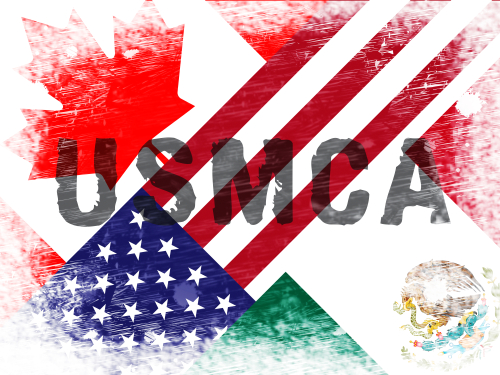
Pennsylvania business leaders are urging Congress to quickly ratify the United States-Mexico-Canada Agreement (USMCA), which they say would create thousands of jobs, inject billions of dollars into the state economy, and support its many manufacturers and small businesses.
The USMCA was signed by the leaders of the three nations in November 2018, but it still has not been ratified by Congress. U.S. President Donald Trump has been pushing for its ratification by the end of the year, but House Democrats continue to negotiate changes to the trade agreement.
“The USMCA strengthens and modernizes America’s innovation engine by including best-in-class intellectual property rules and setting new standards for the 21st-century digital economy,” Darlene Robbins, president of the Northeast Pennsylvania Manufacturers and Employers Association, said. “The USMCA expands U.S. manufacturing access to Canada and Mexico and levels the playing field by raising standards, improving transparency and prohibiting anti-competitive activity.”
Proponents of the USMCA say the trilateral agreement is an improvement upon the North American Free Trade Agreement (NAFTA) that has been in place since 1994. Changes in the global economy have required updates to strengthen trade for manufacturers and farmers. Among the differences, USMCA has a requirement that says cars must have 75 percent of their components manufactured in Mexico, the United States, or Canada to qualify for zero tariffs – up from 62 percent under NAFTA. Further, there are new provisions to strengthen intellectual property protections, foster the digital economy, and reduce red tape.
Market access to Canada and Mexico is incredibly important for Pennsylvania manufacturers, said Tina Weyant, executive director of World Trade Center Harrisburg, a nonprofit that promotes international trade. Those two nations purchase about $14 billion in goods from Pennsylvania manufacturers, which represents about 39 percent of manufacturers’ total exports, Weyant said. Those exports support almost 43,000 manufacturing jobs in Pennsylvania alone and about 2 million nationwide.
“For the eight counties of south-central Pennsylvania, which our organization serves, the percentage is even higher, averaging 42 percent,” Weyant added.
Top Pennsylvania exports include chemicals; electrical equipment and components; food and beverages; iron and steel; fabricated metal products; agriculture, construction and mining machinery; plastics; other machinery; paper products; petroleum and coal products. Chemical and electrical equipment exports to Canada and Mexico have grown approximately 60 percent in the past decade.
Also, the state exports about $1.4 billion in agricultural products to Canada and Mexico each year, which accounts for almost 60 percent of Pennsylvania’s agriculture exports, according to the Pennsylvania Farm Bureau (PFB). The USMCA includes several new provisions, such as the elimination of Canada’s milk pricing program, which will increase the number of export opportunities for dairy and poultry farmers.
U.S. Rep. John Joyce (R-PA) called the trade agreement “a huge win” for Pennsylvania’s 13th District, which he represents.
“Our region is made up of so many hardworking dairy farmers who have struggled in recent years due to the regulatory hurdles imposed by the previous administration. This deal will unleash new markets and reinvigorate our agriculture industry, increasing dairy exports to Canada by a total of $227 million,” Joyce wrote in a July op-ed.
The state’s energy sector also relies on trade with the two nations. Pennsylvania accounts for about 19 percent of U.S. natural gas production, according to the Institute for Energy Research. Over the last 10 years or so, U.S. gas exports to Mexico have tripled, according to Thomson Reuters data – and that number is expected to rise. This will provide continuing opportunities for Pennsylvania’s natural gas providers.
If the USMCA is not ratified, it would have an adverse impact on the state’s economy, experts warn. According to a study by Trade Partnership Worldwide, Pennsylvania could lose between 71,300 to 142,000 jobs without a deal. Also, Pennsylvania manufacturers’ exports could face $244 million to $1.7 billion in extra taxes, according to the National Association of Manufacturers.
U.S. Trade Representative Robert Lighthizer met with House Speaker Nancy Pelosi (D-CA) and House Ways and Means Chairman Richard Neal (D-MA) last week to work out a compromise that will move the USMCA closer to passage. Neal said he hopes to strike a deal in the next few weeks and put it to a vote of Congress, possibly by the end of the year.
“Passing the USMCA is needed now, as uncertainty as to its future inhibits or slows market expansion efforts, resulting in lost opportunities for growth,” Weyant said.
Robbins concurred, adding that it will better position the three nations against global competitors.
“Manufacturers need certainty now, not later,” Robbins said. “With 2 million American jobs dependent on exports to Canada and Mexico, Congress should move quickly to pass the USMCA without further delay.”